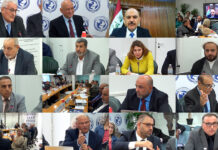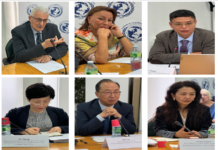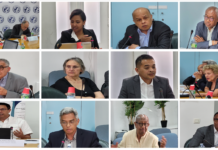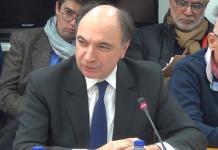Téléchargez l’article au format PDF
Arezki Ighemat
Ph.D in Economics, Master of Francophone Literature (Purdue University)
The present article aims at assessing the level of democracy in Algeria. To do that, the author based his analysis on two main instruments: democracy indexes issued by some international organizations such as Freedom House, Reporters Without Borders, Human Rights Watch and the analyses of some experts on Algerian politics. Both of these sources agree to state that Algeria is far from being a “full democracy” as the official name of Algeria and the Algerian Constitution – ”République Algérienne Démocratique et Populaire” – indicate. These reports, indexes, and experts all state that democracy in Algeria not only had the tendency to regress, but it had deteriorated even more since the eruption of the covid-19 pandemic as is indicated by the increase in the prosecutions, arrests, and imprisonments committed by Algerian authorities since 2019. The “Hirak” protest movement of 2019 – which meant to establish a democratic transition – has failed.
Le présent article vise à évaluer le niveau de la démocratie en Algérie. Pour ce faire, l’auteur a utilisé deux principaux instruments : les indices de démocratie établis par les organisations internationales telles que Freedom House, Reporters Without Frontiers, Human Rights Watch et les analyses de certains experts de la politique algérienne. Ces deux sources s’accordent à reconnaître que l’état dans lequel se trouve aujourd’hui l’Algérie est loin d’être celui d’une « réelle démocratie » comme le prétend le nom-même donné à l’Algérie : « République Algérienne ‘Démocratique’ et Populaire ». Ces rapports et indices indiquent tous que l’état de la démocratie en Algérie a connu une tendance à la détérioration, notamment depuis l’irruption de la pandémie du covid-19. Les « Hiraks » de 2019 et de 2021 – qui avaient pour but d’établir une transition démocratique – a échoué.
In article 1, the algerian constitution of 2020 indicates that “Algeria is a Democratic and Popular Republic.” In its article 7, it establishes the existential principle of democracy, “The people are the source of power. National sovereignty belongs exclusively to the people.” Its article 8 underlines even more this principle, “Constitutional power belongs to the people.” Article 12 reinforces even more that principle by stating, “People choose freely their representatives.” Last but not least, article 13 underlines even more this democratic principle by stating, “The State derives its ‘raison d’être’ and its legitimacy in the popular will,” and provides two further precisions: The State’s motto is ‘By the people and for the people,’ reminding us of the slogan launched by the American President Abraham Lincoln in his speech in Gettysburg in 1863: “Government of the people, by the people, for the people.” Article 13 goes on stating, “The State is at the service of the people.”
Article 16 mentions other fundamental elements of democracy such as, “The State is founded on the principles of democratic representation, separation of powers and the guarantee of the rights, liberties, and social justice.” These six articles could summarize, by themselves, the definition of the concept of ‘democracy’ which derives from the two Greek words ‘demos’ (people, citizens) and ‘kratos’ (power, rule). According to this definition, a democratic state is one which applies that golden rule of democracy. Does the Algerian State apply that rule? Many international institutes and agencies in charge of evaluating the democratic level of countries and many experts in politics and constitutional law, doubt it, as we will see later.
To answer this question, we need to ask three preliminary ones: (1) What is the state of democracy in Algeria according to certain international democracy indexes? (2) How do some international experts and observers evaluate the level of democracy in Algeria? (3) What is the state of democracy in Algeria since the eruption of covid-19?
[…]








